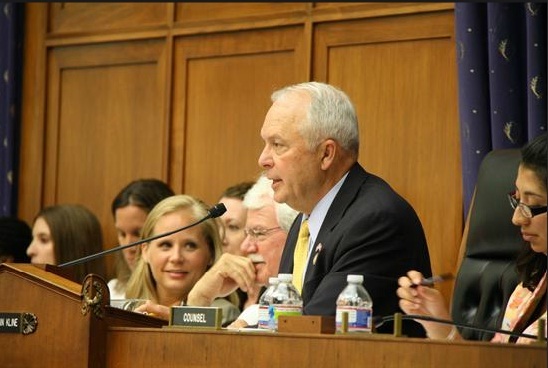House Republicans have released draft language for the last two of five bills to rewrite and reauthorize the Elementary and Secondary Education Act of 1965, currently known as No Child Left Behind.
Education and the Workforce Committee Chairman John Kline (R-MN) says he will sponsor the Student Success Act, which makes several significant changes to the federal role in K-12 education. These includes eliminating the adequate yearly progress (AYP) requirement while retaining requirements for states to disaggregate student achievement data by subgroups such as minorities; the “basic,” “proficient,” and “advanced” designations for federally required state tests; the requirement for states to test students in science; and the “highly qualified teacher” mandate.
“The Student Success Act gets a lot right in fixing what’s wrong with the current federal role in education,” said Michael Petrilli, vice president of the Thomas B. Fordham Institute. “It appropriately acknowledges that states need to be in the driver’s seat when it comes to academic accountability. It allows for a great deal of flexibility at the local level, especially on setting spending priorities. And it gets rid of the charade that is the ‘highly qualified teachers’ mandate.”
“But it errs on one important count,” he continued. “It removes the requirement that states test students in science. At a time when the federal role should be focused on creating more transparency around results, it makes no sense to stop collecting and reporting data about student performance in this critical subject.”
The committee has been working on a piecemeal rewrite of NCLB since spring 2011. The Student Success Act, along with the Encouraging Innovation and Effective Teachers Act, for which draft language was also introduced in January, complete the several bills House Republicans plan to offer for reauthorizing the law.
Revising Accountability Provisions
The “accountability” rewrite of provisions such as AYP and highly qualified teachers has been long anticipated. AYP was widely despised as an artificial and unrealistic set of requirements leading toward 100 percent student proficiency by 2014 or risking federal sanctions. The proposal eliminates AYP but still requires states to implement statewide accountability systems and identify public school performance.
NCLB’s highly qualified teacher provision mandates teachers hold at least a bachelor’s degree and state certification to teach a core subject. The committee proposal eliminates this requirement entirely.
It also eliminates School Improvement Grants that prescribe turnaround models for low-performing schools, and it provides funding flexibility for states’ Title I programs.
“The Student Success Act is an improvement over No Child, but it begs the question: Why is Washington involved in education at all?” asked Neal McCluskey, associate director of the Cato Institute’s Center for Educational Freedom. “For almost 50 years—not just under NCLB—Washington been heavily involved in schooling, ultimately producing no discernible achievement gains. But this bill keeps Washington firmly involved even if its grip would slacken a bit.”




